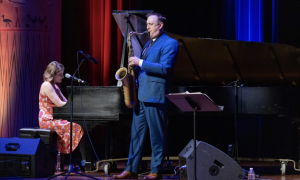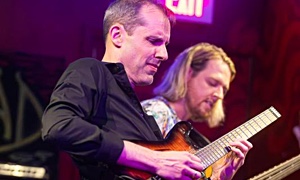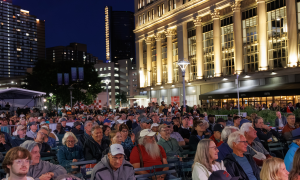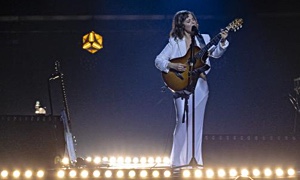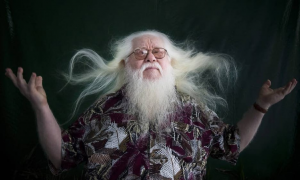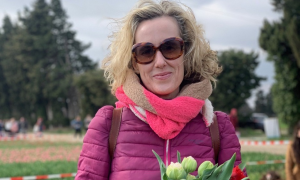Home » Jazz Articles » Catching Up With » Esperanza Spalding’s Prismid Sanctuary
Esperanza Spalding’s Prismid Sanctuary

Esperanza Spalding
bassb.1984
Prismid is being rebuilt as a community-driven space where artists, culture-bearers and ecological practitioners can come together in a sustainable, reciprocal relationship with the land. True to her love of both vision and symbolism, Spalding has also dedicated herself to the number seven. From June 1 through December 31, 2025, she will spend seven months helping Prismid raise the remaining funds needed for its rebuild.
As part of this effort, every donor who contributes $777,777 (or more) will receive something extraordinary: an original commissioned suite of music composed, recorded and delivered by Spalding herself as a one-of-a-kind vinyl record, along with a private performance. This ambitious initiative is more than a fundraising campaign. It is part of a broader global story of artists and cultural workers creating and sustaining the institutions they need. For Spalding, Prismid represents both a sanctuary and a call to action, a model for how arts, culture, and ecological stewardship can coexist, inspire and thrive together.
All About Jazz: It's really incredible to get to speak with you—you've been such an inspiration to me over the years. As I listen to you, it's clear you're not only building this sanctuary but also carefully documenting the process and cultivating an incredible community around it. How important is it for you to share this vision so that others feel empowered to create their own versions of it—both within themselves and in their communities?
Esperanza Spalding: Thank you, thank you for the positive encouragement. Honestly, it took me a long time to feel ready and willing to share more publicly about this work, because it's really challenging work. And we know that a lot of great ideas get established and then a couple years later, they crumble. So in some ways, I wanted us to really get established before I could feel like, oh yeah, this is going to keep going. Even if it had only been a three-year project and then ended, I wouldn't have felt like it was a failure because we learned so much.
But now it's five years in. We have this solid, beautiful team. The work is working. The programs are programming. The space is spacing. We're all clear on the areas we need to grow and there's still so much to do—but I feel confident stepping up in the world with my name associated with this, saying this is real, it's happening, and I see other people doing it too. And I want to support that, because the folks who need to do this work are already out here doing it in so many places. What I keep learning from colleagues, friends, and fellow artists is that everyone's tending their own version of this. The redundancy is really important because we need as many versions of this as there are communities. Even within one community, there can be micro-communities that each deserve their own space to be respected and supported. So part of the message of all this is: yes, it's challenging, but it's also very doable.
And the reason we archive so much is because there are long challenges in this kind of work that you can't know until you're in it, bumping your head against it. Part of what I want to do when I share is [to] be transparent—here's how we built infrastructure to alleviate this challenge or that strain. There's also another layer. I know some people don't care about this kind of work—and that's fine. My job isn't to convince them. I know there are enough people on Earth who do understand why it matters and who want to support it. My role now is to let people know we're here, we're doing this and we're open to support. And then there's the album campaign. Maybe some people don't care about the sanctuary, but they want to commission a personalized album. So even if they don't care about the sanctuary, they can make a tax-deductible donation, and in return, I'll make them an album. That's another layer—reaching those folks too.
AAJ: What drew you to that idea of garnering support in that way? And I'm very curious about the number seven. How did that come about, if you're willing to share?
ES: Well, this idea came about because I'm one of the co-directors—there are two of us—and as we were delineating our different areas of responsibility within the organization, all the parts related to fundraising fell into my lap, you know? As I was plotting with our development director, like, how are we going to do this, I heard the usual best practices for organizations: partner, fund, apply, repeat. And I was thinking about how that would pull me away from what I actually need to be doing as a director who's also an artist. I don't want to spend all my time in fundraising conversations; I want to practice. I want to write.
So, I remembered that I'm an artist who makes things I believe are very valuable—and some other people do too. I asked myself: how can I use the thing I love to do, the thing I do best, to support this other work I love so much, without it pulling me away? That's where the idea grew from. I also believe original music made by musicians should be treated with the same economic and cultural value as original artworks in other media. So yes, an original work from me to you is worth a lot, and we should practice that knowing.
AAJ: Before we wrap up, I'd love to ask about the land back aspect of this project. For many people, it is hard to even imagine what that looks like—the work of decolonizing our present and future lifeways. What has it been like for you to learn about that process, to imagine the possibilities, and to begin integrating it into reality?
ES: The first word is slow—very slow, very relational. Right now, we have an interim ownership structure: the land is held by the nonprofit. That was the first step in getting it out of private ownership, making it a community organization. So that's phase one: there's now a multi-voice process for stewarding this land, through board members who are local and who are themselves rooted in arts and culture.
Our co-director is Mick Rose and for the past 20 years they've been doing deep community-building work in Indigenous communities here in Portland. They've been developing a land toolkit and have been in this conversation for years. And still there are so many definitions and interpretations of what land back means. I think, at its core, it comes down to a commitment and a willingness to discover what your specific, place-based version of land back is—one that prioritizes the sovereignty, priorities and aspirations of the Indigenous communities in your region.
And I'll say, as a Black person who became curious about what it would mean to create a restorative, reparative, permanent land project for Black and brown folks, I knew it also had to be grounded in a commitment to good relationship with the histories and communities of Indigenous people on this land. That sounds complicated, but ultimately it's about a willingness to learn, a willingness to not have the answer right away, and letting the solution for our locale grow out of real relationships, real conversations, and a willingness to face history, to ask, "What do we want to do together from here?" That's going to look different in different places.
For some communities, land back simply means honoring the treaties. In Oregon, I've heard people say explicitly, "We just want the treaties upheld. Let's start there." For others, rematriation means returning the artifacts of ancestors that were taken without permission and are now sitting in universities or museums. So I don't want to offer a blanket definition. What I can say is that for us, it's slow, relational and emergent. We keep naming it as a commitment, so our partners know where we're coming from—that we're willing to figure it out together, without needing to have the answer ahead of time. To be supple, responsive, and grounded in relationship.
Tags
Comments
PREVIOUS / NEXT
Esperanza Spalding Concerts
Oct
3
Fri

esperanza spalding
Blue Note HawaiiHonolulu, HI
Oct
3
Fri

esperanza spalding
Blue Note HawaiiHonolulu, HI
Oct
4
Sat

esperanza spalding
Blue Note HawaiiHonolulu, HI
Oct
4
Sat

esperanza spalding
Blue Note HawaiiHonolulu, HI
Support All About Jazz
 All About Jazz has been a pillar of jazz since 1995, championing it as an art form and, more importantly, supporting the musicians who make it. Our enduring commitment has made "AAJ" one of the most culturally important websites of its kind, read by hundreds of thousands of fans, musicians and industry figures every month.
All About Jazz has been a pillar of jazz since 1995, championing it as an art form and, more importantly, supporting the musicians who make it. Our enduring commitment has made "AAJ" one of the most culturally important websites of its kind, read by hundreds of thousands of fans, musicians and industry figures every month.


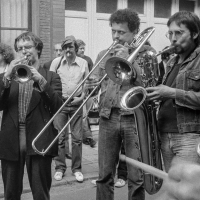
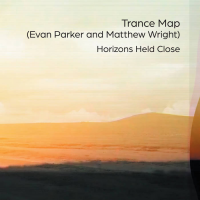

 Buy Now
Buy Now


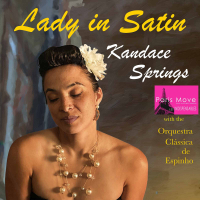
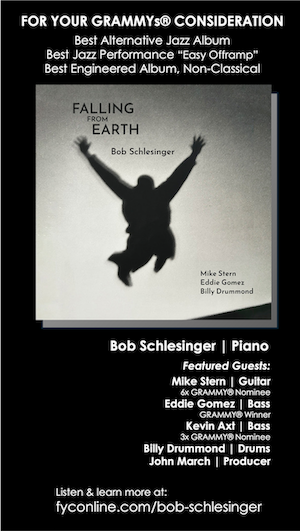 Bob Schlesinger: Falling From Earth
Bob Schlesinger: Falling From Earth





